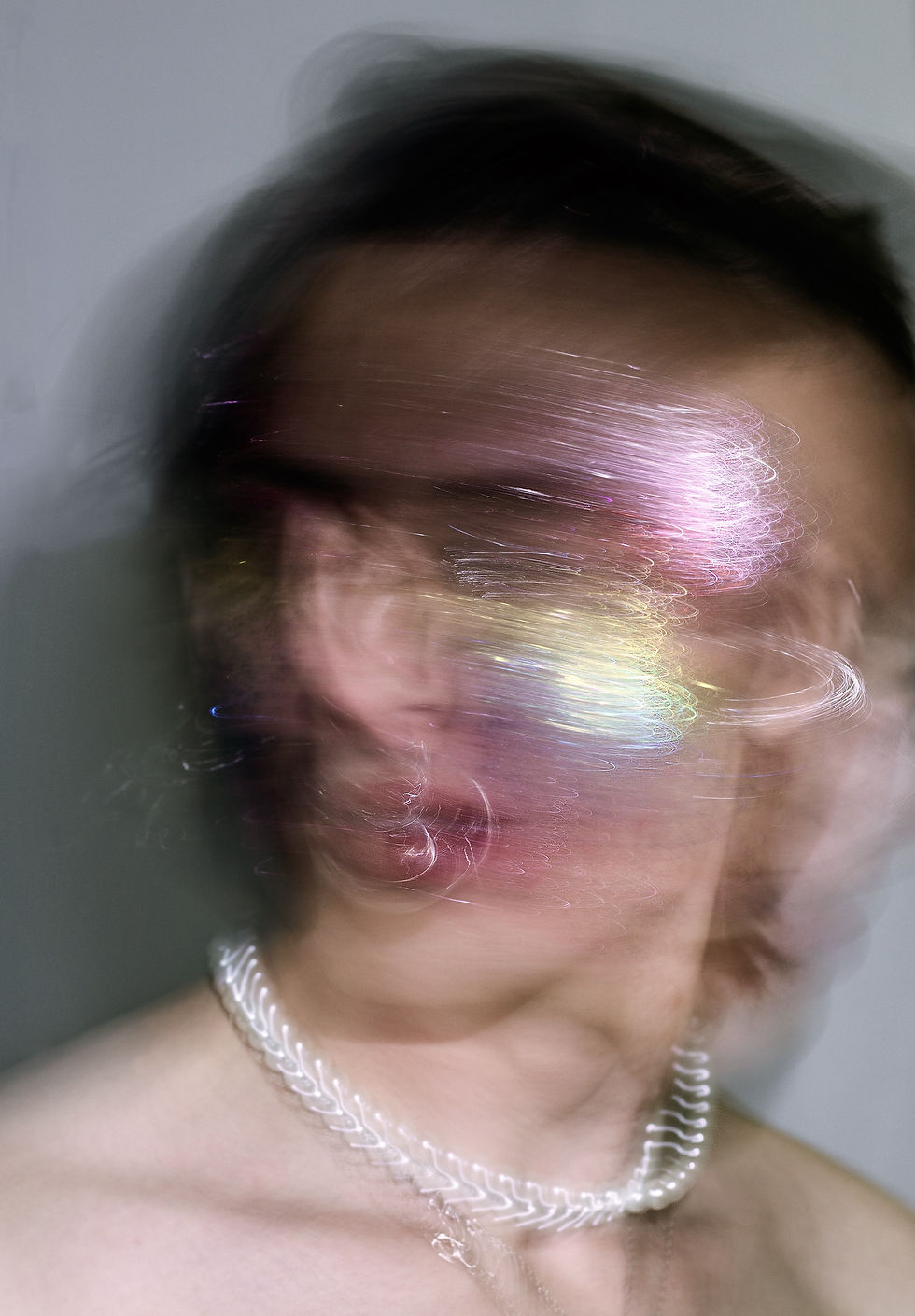When You Can’t Cum Without a High: Chasing Orgasm After Clubbing
- Filip
- Jul 26, 2025
- 3 min read
Updated: Aug 12, 2025
It always starts the same.
The music fades, the Uber's too bright, your skin is still buzzing. Maybe you’re back at someone’s flat. Maybe it’s someone you know. Maybe it’s someone you don’t. The night is blurring into morning and suddenly you’re naked, wrapped around another body that’s hot but far away. You want to come. You’re trying to come. But it’s not happening — again.
And you know exactly why.

The High That Took It With You
Sex after MDMA is supposed to be euphoric. That’s half the myth — all touch, no thoughts, just bodies dissolving into each other. But that’s not always the reality. Sometimes it’s just a brutal anticlimax. Your mind says yes, but your body says: we’re offline. You’re present, you're aroused, you want to climax. But the orgasm isn’t coming — because your dopamine already did.
This is drug-induced anorgasmia. It's not niche. It's not even new. It just doesn’t get talked about because it feels like failure — a physical betrayal that undercuts the high.
Science Says: Your Brain’s Tapped Out
MDMA (and other club drugs like amphetamines, coke, even GHB) flood your brain with serotonin, dopamine, and norepinephrine — the neurotransmitters that regulate mood, arousal, pleasure. You feel invincible for a few hours. Everything’s hyperreal. But your brain can’t keep up with that pace. After the spike comes the slump.
Once your neurotransmitters are depleted, orgasm becomes physiologically difficult — sometimes impossible. Your brain literally can't send the right signals to your body. The hardware's there, but the wiring's down. You’re just pressing buttons in the dark.
For some, this crash lasts hours. For others, days. In heavy users, it can stretch longer — especially if mixed with antidepressants, which blunt dopamine sensitivity even further.
Not Coming Feels Like Not Connecting
There’s also the emotional side — the part that science doesn’t fully cover.
When sex becomes part of the post-club ritual, orgasm feels like the full stop at the end of the night. A release, a connection, a return to your body after being lost in someone else’s BPMs. So when it doesn’t happen, it can feel like more than just a missed orgasm. It can feel like intimacy collapsing under the weight of chemical fallout.
Some people feel ashamed. Others angry. Others just lie there, disconnected, faking the final act out of obligation or embarrassment.
It’s not just your body that feels numb. It’s your entire sense of closeness.
The Loop Is the Trap
You start to associate pleasure with being high. Not just clubbing, but feeling. Not just dancing, but wanting. You chase connection on a chemical leash and lose the ability to come without it. Suddenly, sober sex feels flat. Real intimacy feels unreachable. Dopamine isn’t just a buzz anymore — it’s a requirement.
This is how the loop builds:
High → sex → failure → shame → crash → repeat.
The problem is that it can work — sometimes. You might get that one night where the chemistry aligns, where the MDMA lifts and the orgasm hits and the stars feel reachable. But those nights are rare. And the more you chase them, the more they slip into myth.
So What Now?
There’s no clean answer here. Some people stop using. Some take long breaks. Others learn how to separate sex from the high, or how to rebuild intimacy on different terms. Some keep chasing it, even knowing it might never fully deliver.
What matters is acknowledging it — the way club culture intersects with body chemistry, the way nightlife can reshape desire. There’s no shame in the comedown. No weakness in not coming.
Sometimes your body’s just trying to tell you something your mind hasn’t caught up to yet.





